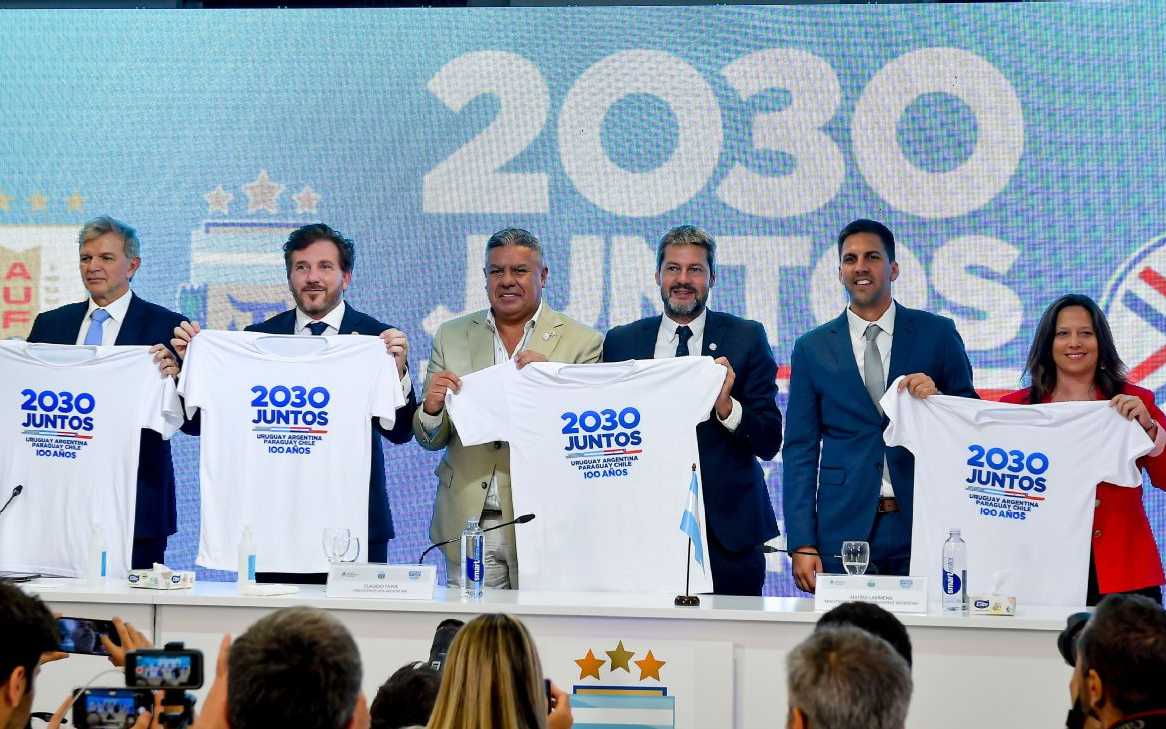The contest to host the 2030 World Cup finals has been definitively narrowed down by apparent confirmation that Saudi Arabia has pulled out of the always-doubtful proposal for a bidding partnership with Egypt and Greece.
Saudi interests had always appeared, sensibly, to focus on the 2034 finals because rivals from Europe and South America both have strong claims to the centenary Cup in 2030 and because of the rotation concept which denies a confederation staging more than one tournament in three.
Qatar, also from the Asian co-federation, staged the finals last November and December. Further, the Saudis will have noted the virulent criticism and negative publicity which rained down on those finals over issues such as human rights, working conditions, LGBTQ and onsite availability – or lack of it – of alcohol.
Simultaneously FIFA announced that the vote of an extraordinary congress next year on the 2030 host had been pushed back from autumn to possibly December.
This suggested that FIFA president Gianni Infantino is hoping to broker some sort of a deal between the two bids left standing – Europe’s Spain/Portugal proposal and the four-way South American offering from Uruguay, Argentina, Chile and Paraguay.
CEFERIN CLAIM
Aleksander Ceferin, president of the European Federation, has always insisted that 2030 must be the turn of Europe whose last hosting was in Russia in 2018; by contrast the South American bid appeals to the romantic soul of the game since the inaugural finals were held in Uruguay in 2030.
The South American bid faces serious problems over its unwieldy nature and the fact that the Uruguayans would need a new main stadium since the historic Centenario – which saw the first final – falls a long way short of the infrastructure criteria demanded for a modern World Cup. As a national monument, there is no chance of the venue being razed and rebuilt.
Hence speculation that, behind the scenes, the 2030 World Cup might be awarded to Spain and Portugal but with the Opening Match being staged in Buenos Aires and the eve-of-finals congress and event ‘party’ being awarded to Uruguay.
As for decision timing, a FIFA statement said:
To ensure additional consultation with all key stakeholders, in relation to the FIFA World Cup 2030™, which will mark the centenary of men’s football’s showpiece tournament, the FIFA Council [has] agreed to postpone the formal launch of the bidding process.
Therefore, the relevant Bidding Regulations will be presented for approval at the next FIFA Council meeting, due to take place in September/October 2023, with the bidding process to be officially launched thereafter. The expected appointment of the host(s) by the FIFA Congress will also move from [the third quarter of] 2024 to [the fourth quarter] of 2024.
The FIFA Council also approved the Overview of Hosting Requirements for the FIFA World Cup 2030™, which was prepared by the FIFA administration to allow all interested member associations to better understand the requirements for hosting the competition, including with regard to the required infrastructure, the legal framework that must be established and the environmental and social objectives that should be pursued.

